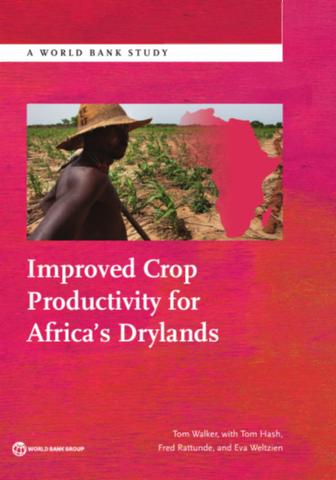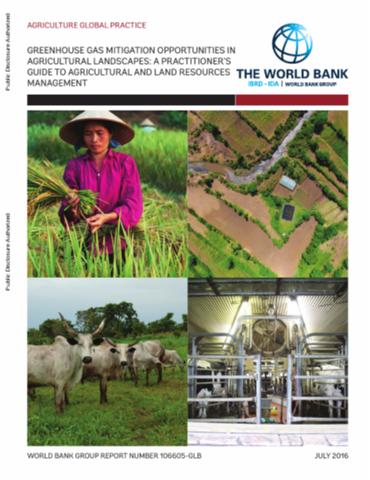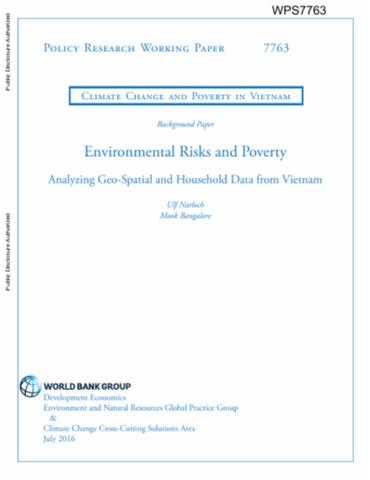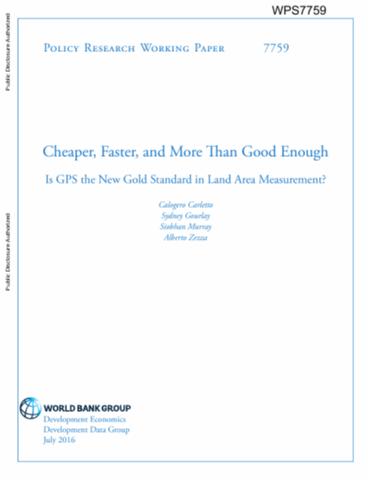The World Bank is a vital source of financial and technical assistance to developing countries around the world. We are not a bank in the ordinary sense but a unique partnership to reduce poverty and support development. The World Bank Group has two ambitious goals: End extreme poverty within a generation and boost shared prosperity.
- To end extreme poverty, the Bank's goal is to decrease the percentage of people living on less than $1.25 a day to no more than 3% by 2030.
- To promote shared prosperity, the goal is to promote income growth of the bottom 40% of the population in each country.
The World Bank Group comprises five institutions managed by their member countries.
The World Bank Group and Land: Working to protect the rights of existing land users and to help secure benefits for smallholder farmers
The World Bank (IBRD and IDA) interacts primarily with governments to increase agricultural productivity, strengthen land tenure policies and improve land governance. More than 90% of the World Bank’s agriculture portfolio focuses on the productivity and access to markets by small holder farmers. Ten percent of our projects focus on the governance of land tenure.
Similarly, investments by the International Finance Corporation (IFC), the World Bank Group’s private sector arm, including those in larger scale enterprises, overwhelmingly support smallholder farmers through improved access to finance, inputs and markets, and as direct suppliers. IFC invests in environmentally and socially sustainable private enterprises in all parts of the value chain (inputs such as irrigation and fertilizers, primary production, processing, transport and storage, traders, and risk management facilities including weather/crop insurance, warehouse financing, etc
For more information, visit the World Bank Group and land and food security (https://www.worldbank.org/en/topic/agriculture/brief/land-and-food-security1
Resources
Displaying 251 - 255 of 4906Improved Crop Productivity for Africa’s Drylands
More than 200 million people living in dryland regions of Sub-Saharan Africa make their living from agriculture. Most are exposed to weather shocks, especially drought, that can decimate their incomes, destroy their assets, and plunge them into a poverty trap from which it is difficult to emerge. Their lack of resilience in the face of these shocks can be attributed in large part to the poor performance of agriculture on which their livelihood depends. Opportunities exist to improve the fortunes of farming households in the drylands.
Greenhouse Gas Mitigation Opportunities in Agricultural Landscapes
Agriculture, and the patterns of land-use change that are associated with it, have a significant ecological footprint, including the effects it has on climate change, accounting for about one-quarter of anthropogenic greenhouse gas (GHG) emissions globally. Yet agriculture is also the only economic sector in which opportunities are present to mitigate climate change, mainly by removing substantial volumes of carbon from the atmosphere and sequestering them in soils and plant tissues. This report synthesizes information on the many areas in which agricultural GHG emissions can be reduced.
Environmental Risks and Poverty
This study combines high-resolution, geo-spatial data and household data from the Vietnam Living Standard Measurement Surveys in 2010, 2012, and 2014 to investigate the relationship between environmental risks and poverty.
Cheaper, Faster, and More Than Good Enough
In rural societies of low- and middle-income countries, land is a major measure of wealth, a critical input in agricultural production, and a key variable for assessing agricultural performance and productivity. In the absence of cadastral information to refer to, measures of land plots have historically been taken with one of two approaches: traversing (accurate, but cumbersome), and farmers' self-report (cheap, but marred by measurement error). Recently, the advent of cheap handheld GPS devices has held promise for balancing cost and precision.
Managing Forest Ecosystem Services for Hydropower Production
In many countries, hydropower development is rapidly becoming a focus of green growth policies. This represents a significant opportunity for ecosystem services-based land management that integrates environmental and development goals to benefit the hydropower sector and support economic growth. In this study, we present an approach for targeting ecosystem-provision investment in hydropower catchments coupled with hydrologic modeling to quantify the benefits of soil and water conservation activities.










